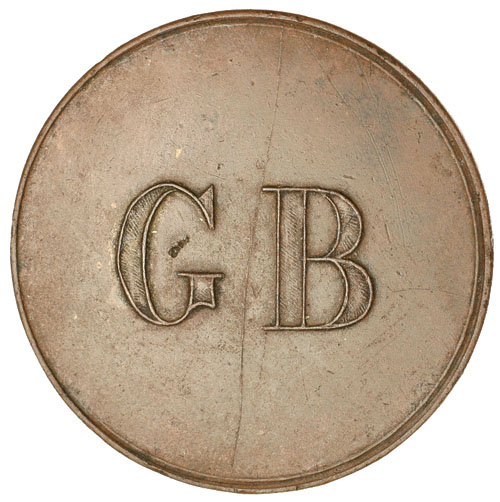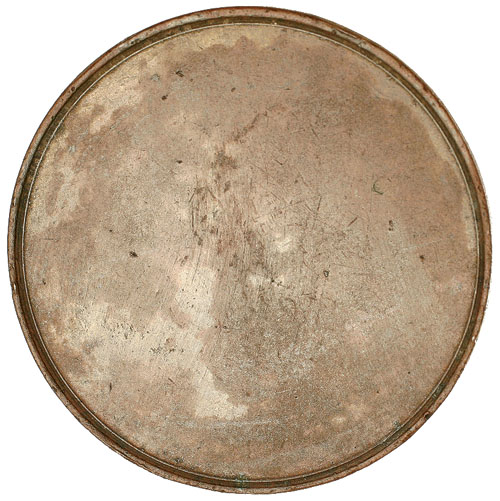| SPECIFICATIONS | |
| Denomination | 4½ pence |
| Alloy | Brass |
| Diameter | 28 mm |
| Thickness | mm |
| Weight | 8.55 gms |
| Shape | round |
| Edge | Plain |
| DieAxis | 0° |
| Issue | |


|

|

| ||||||||||||||||||||
| Lowsley #4; Pridmore #10 | ||||||||||||||||||||||
| Obverse : | G B (George Bird) at center inside raised rim. |
| Reverse : | Blank within raised rim. |
The other two denominations looks identical.
The larger Full Unit (P#9) has Diameter 34 mm and weight 12.95 gms.
The smaller Quarter Unit listed in Remick has Diameter 22.5 mm and weight 5.5? gms
The GB tokens are tentatively associated with George Bird, one of the earliest planters in Ceylon. George Bird was the second brother of Colonel Henry Bird, Deputy Commissioner-General to His Majesty's Forces in Ceylon during the Governorship of Lieut.-General Sir Edward Barnes K.C.B. (1824-1831).
The first coffee estate in Ceylon was opened in 1821 at Sinnapitiya near Gampola under the management of George Bird. Later, he opened the land at Kondasale, and Pussellawa. In 1862 George Bird was at Gampola, the place from which the tokens possibly originate, as Lowsley (No. 4) makes special mention of the fact that he only found specimens at Kandy.
Pridmore notes that Lowsley listed them as copper, but all he examined were Brass.
Reference
* Coins and Tokens
of Ceylon, Lieut. Col B. Lowsley, Num. Chron. Sr III Vol. XV, 1895.
* The Coins of British Commonwealth of Nations to the end of the
reign of George VI 1952
Part 2 - Asian Territories by F. Pridmore Spink & Son Ltd., 1965.
Tokens
This token is ex Carnegie Museum of Natural History Collection (lot 878 part), and images from 2007 July 25 Noble Auction#85 lot 2294. ex Robert Climpson Collection. Displayed at 200 dpi.